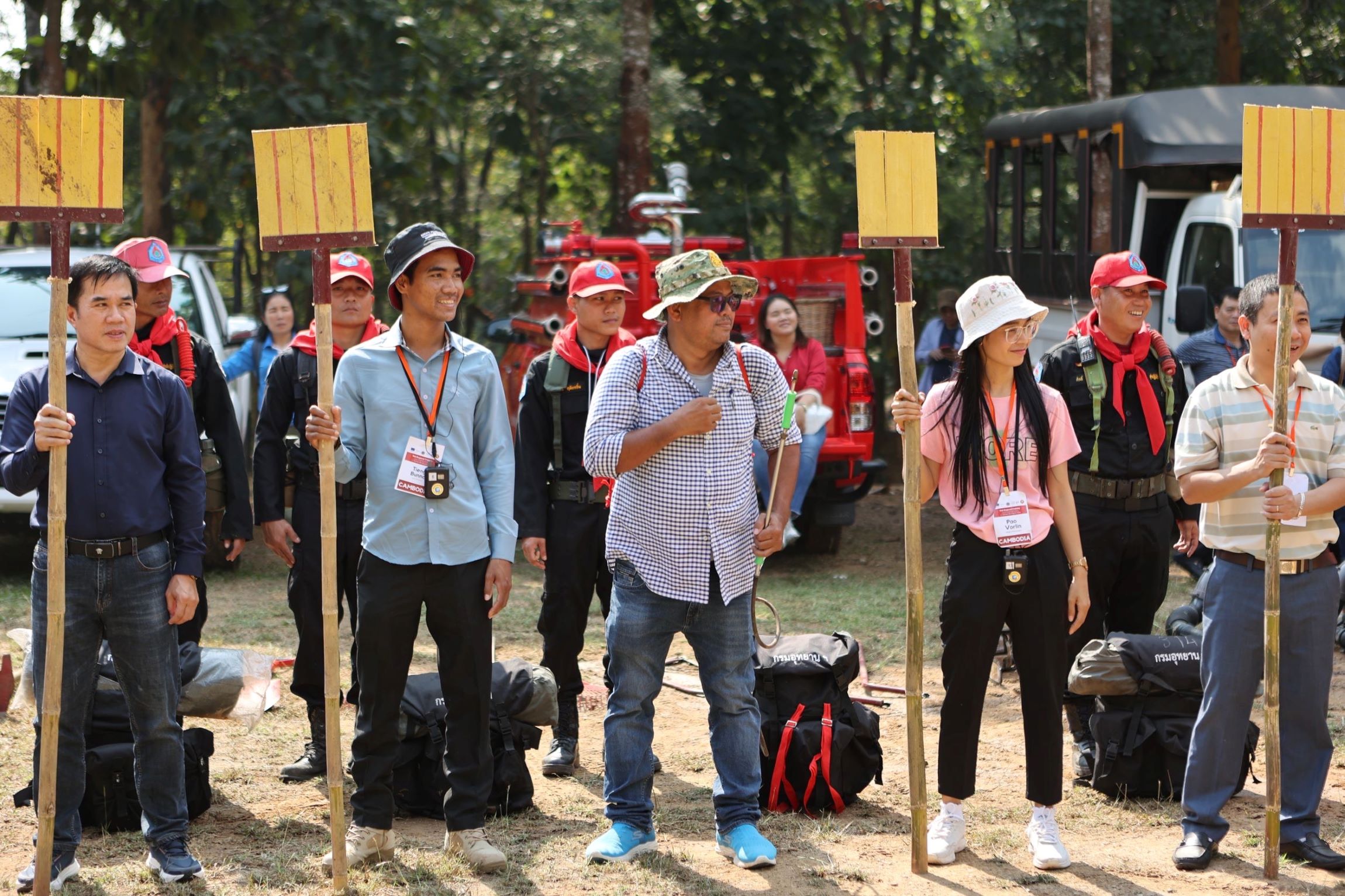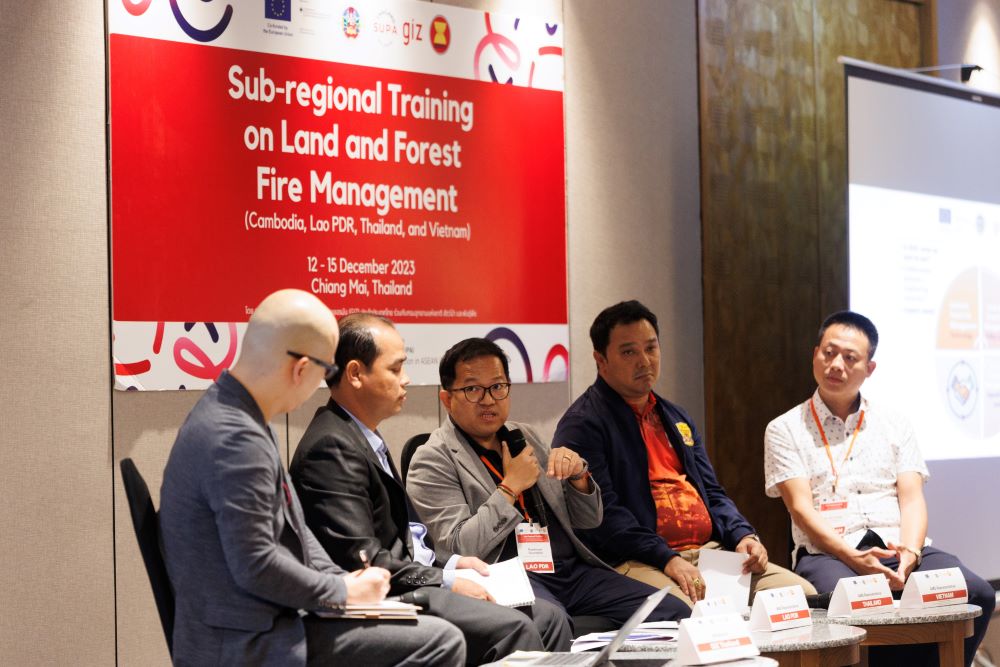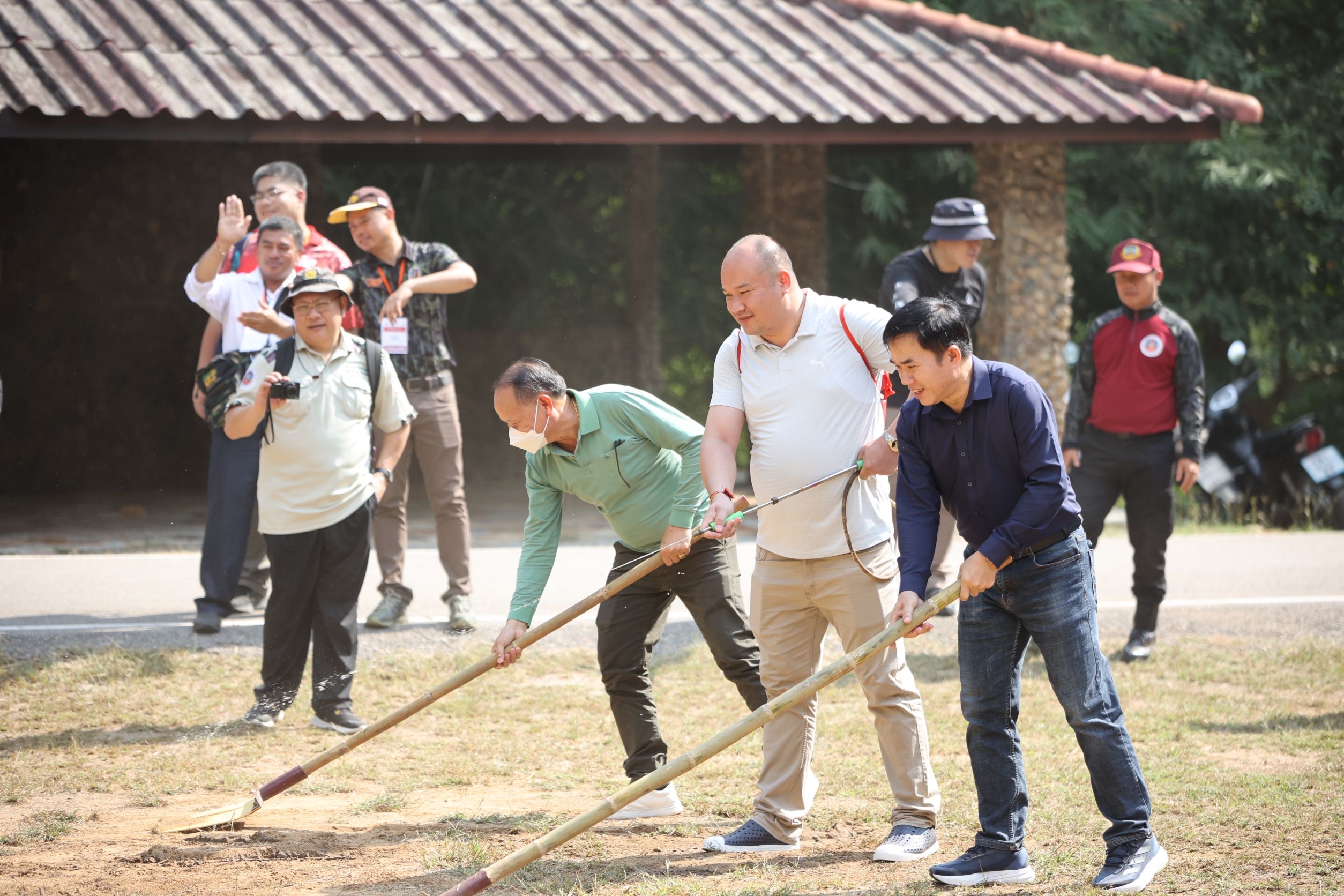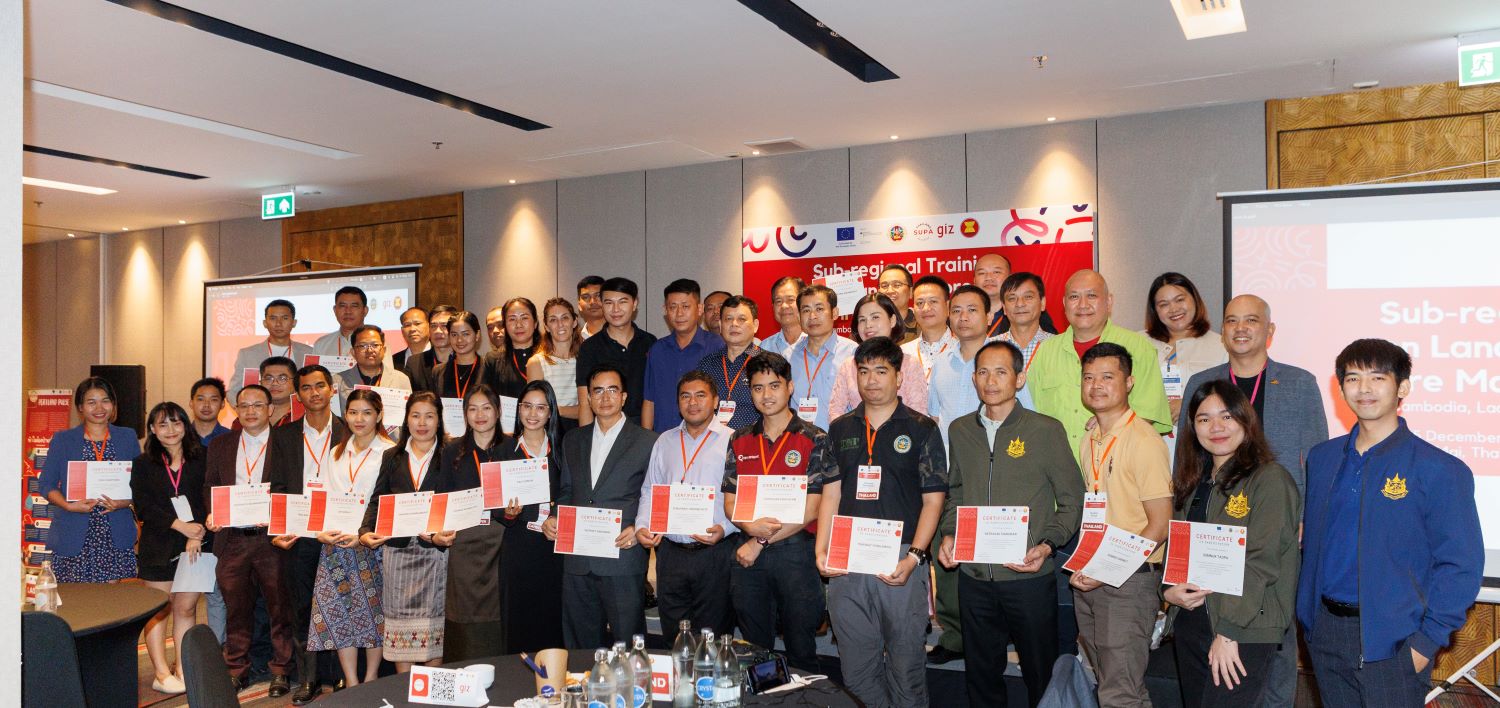SUPA Thailand and ASEAN Launch Joint Training Programme to Boost Regional Forest Fire Suppression Capabilities

Representatives of ASEAN member countries participated in the training at the Northern Forest Fire Control Training and Development Centre.
- ASEAN is working in concert to conduct training programmes aimed at elevating the capabilities of officials at the regional level to proactively address and resolve the persistent issue of cross-border haze.
- Chiang Mai has been selected as the venue for this pivotal training to share Thailand’s valuable insights, experiences, and lessons learned in forest fire management with member countries of ASEAN.
- The training programme has been meticulously designed to bolster the capacities and competencies of government officials responsible for wildfire management decisions through a holistic approach, integrating academic knowledge, advanced skill sets, as well as practical and virtual field training.
This initiative was executed in partnership with the Department of National Parks, Wildlife and Plant Conservation and GIZ Thailand. Its primary aim was to enhance understanding and recognition of transboundary environmental issues in the Upper Mekong region of Southeast Asia, encompassing member states of the Association of Southeast Asian Nations (ASEAN). The focal point of this collaboration was a regional workshop titled “Training on Land and Forest Fire Management for Cambodia, Lao PDR, Thailand, and Vietnam”. This workshop forms a critical component of the Sustainable Use of Peatland and Haze Mitigation in ASEAN (SUPA) project. Conducted from 12 to 15 December 2023 in Chiang Mai Province, the event brought together more than 70 high-ranking officials and specialists in forest fire prevention and management from Thailand, Laos, Cambodia, and Vietnam, facilitating a comprehensive dialogue and exchange on strategies for effective land and forest fire management in the region.
The training took place at the Northern Forest Fire Control Training and Development Centre in Chiang Mai Province, a key establishment for the region in enhancing the capabilities of government and civil society personnel in forest fire management. The centre is dedicated to the development of innovative strategies, techniques, methods, and equipment for forest fire control. It aims to facilitate the dissemination of knowledge and foster collaboration and support among various agencies within Thailand, while also building the foundation for future integration with the ASEAN network.
The programme included activities in areas long affected by forest fires and cross-border haze in northern Thailand. These regions offer valuable lessons for the ASEAN community on the collaborative efforts required to address the escalating challenge of forest fires, which are being exacerbated by climate change and human activities. These activities include illegal burning for land clearing and agricultural waste disposal, encroachment of forest areas due to urban expansion, and illicit ignition of forest fires for foraging and hunting. These practices contribute to the widespread issue of forest fires, leading to cross-border smog and PM2.5 air pollution, which currently represent a significant crisis for both Thailand and the Southeast Asian region.
The primary goal of the training beyond facilitating knowledge exchange among representatives from different countries is to enhance the capabilities of government officials from the Upper ASEAN Member States. The focus is on practical and proactive planning for wildfire management, aiming to prevent fires and promote sustainable practices. The training programme combines theoretical classroom learning with hands-on field activities, designed to equip participants with a comprehensive understanding of contemporary forest fire management strategies and techniques. This approach is particularly relevant in the context of climate change, which is causing increasing levels of uncertainty. Participants are trained in the application of advanced technologies, including the use of satellite data for precise planning and the deployment of drones to support the efforts of officials in hazardous areas. These tools are critical to enhancing the efficiency and effectiveness of wildfire management efforts, enabling timely and informed decision-making in the face of evolving environmental challenges.

Participants shared lessons and challenges in managing forest fires in the region.
The training, a collaborative effort between the ASEAN Task Force on Peatlands (ATFP) and forest and land fire management representatives from Cambodia, Laos, Thailand, and Vietnam, aimed at integrating knowledge across agencies and countries. It started with a focus on understanding regional policies and shared management lessons, emphasising the importance of regional collaboration. The subsequent sessions concentrated on technical skills and hands-on experiences in forest fire management, including modern control strategies and emergency mechanisms. Experts from the Asian Disaster Preparedness Center (ADPC), the Geo-Informatics and Space Technology Development Agency (GISTDA), Chiang Mai University, the Upper ASEAN Forest Fire Special Research Unit, and the Department of Disaster Prevention and Mitigation enriched the training.

Exchanging knowledge and experiences in managing forest fires and haze across borders between countries
Concurrently, the field training conducted at the Northern Forest Fire Control Training and Development Centre in Chiang Mai Province underscored the criticality of translating classroom-acquired knowledge into practical field applications. Experienced forest firefighting professionals imparted insights into a variety of forest fire extinguishing techniques, including adherence to standard safety protocols and strategic planning. The purpose of these activities is to cultivate a cooperative atmosphere, providing a platform for participants to exchange experiences, strategies and challenges encountered in the field.
This training initiative represents a significant advancement in ASEAN’s ongoing efforts to bolster cooperation within international networks for the effective management of forest fires and haze. Through the collective exchange of knowledge among member states and the assembly of experts and relevant organisations from around the region, this endeavour aims to enhance the development of human resources at the regional level. Furthermore, it seeks to encourage the collaborative exploration of solutions to environmental challenges, thereby fostering an integrated approach to addressing these issues.

Participants in the training participated in practice exercises on forest fire extinguishing according to academic principles.
The SUPA, benefiting from the backing of the European Union and the German Federal Government, is facilitated through GIZ Thailand. This initiative places a strong focus on promoting the sustainable management of peatlands within the ASEAN region. Scheduled for execution between 2023 and 2024, the project is undertaken in partnership with Thailand’s Department of National Parks, Wildlife and Plant Conservation. With a budget allocation of 38 million baht specifically for Thailand, the project is dedicated to advancing the objectives outlined in the ASEAN Peatland Management Strategy (APMS 2006-2020), aiming for noteworthy achievements in this vital area of environmental conservation.

Participants from Cambodia, Laos, Thailand, and Vietnam
Thawatchai Palakhamarn
Team leader and project coordinator SUPA Thailand
Email:Thawatchai.palakhamarn(at)giz.de
Related project news